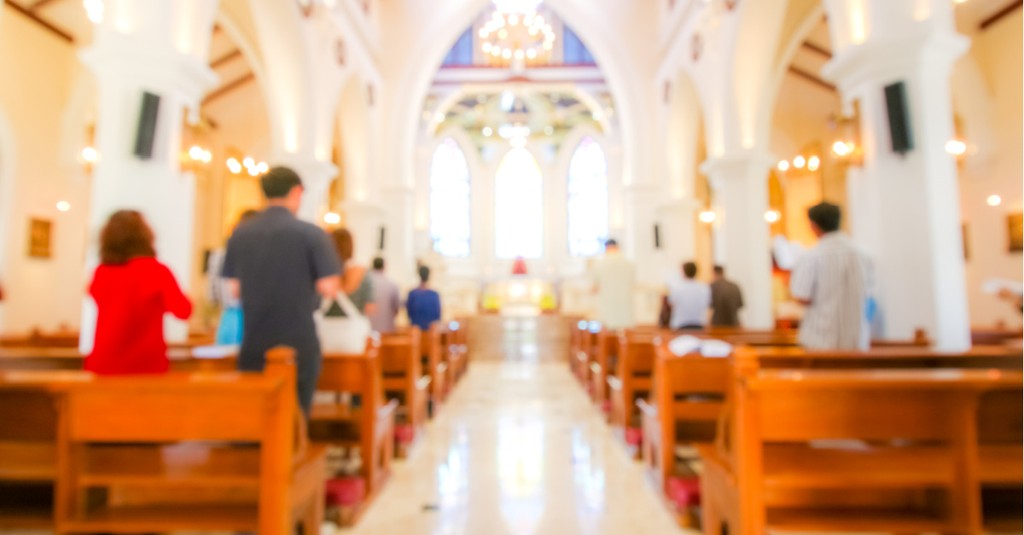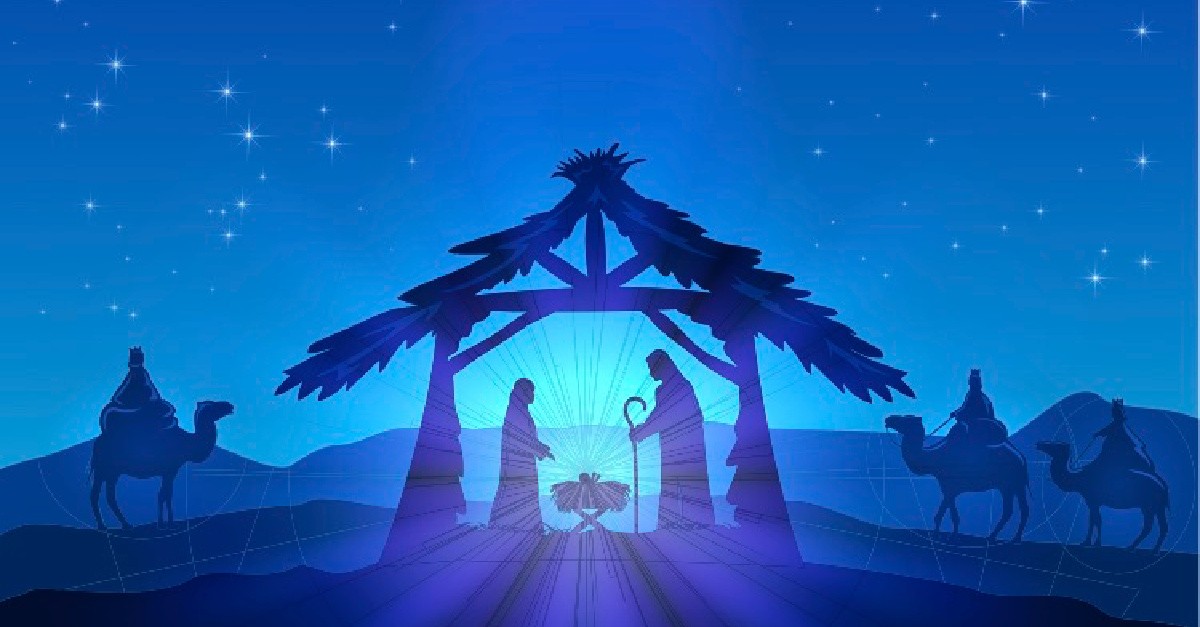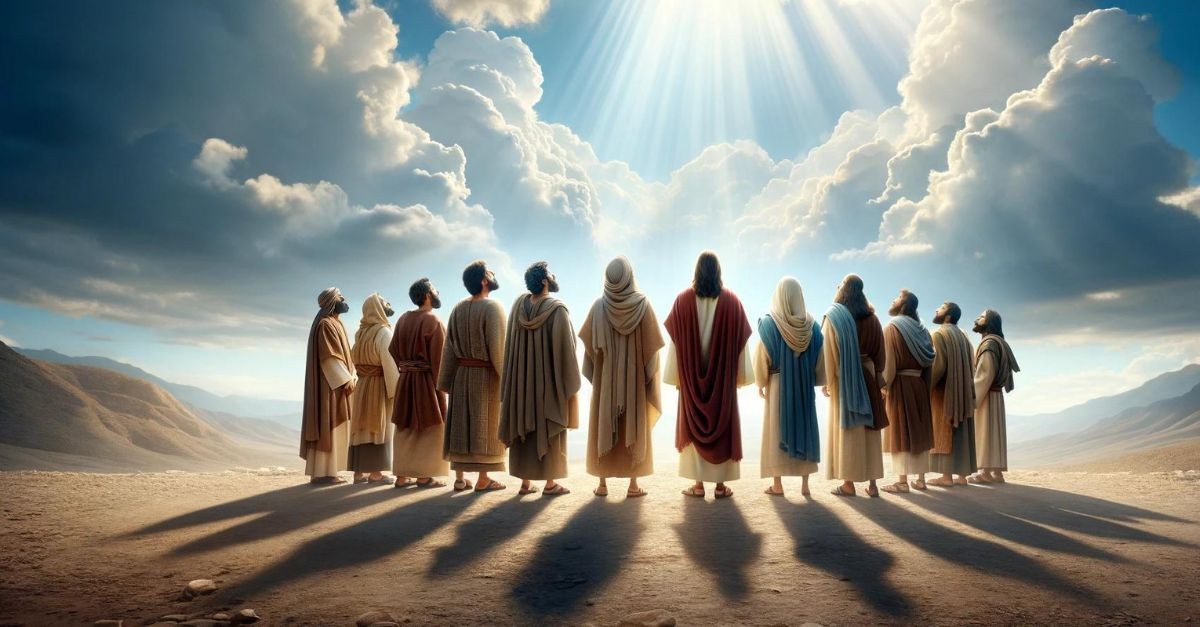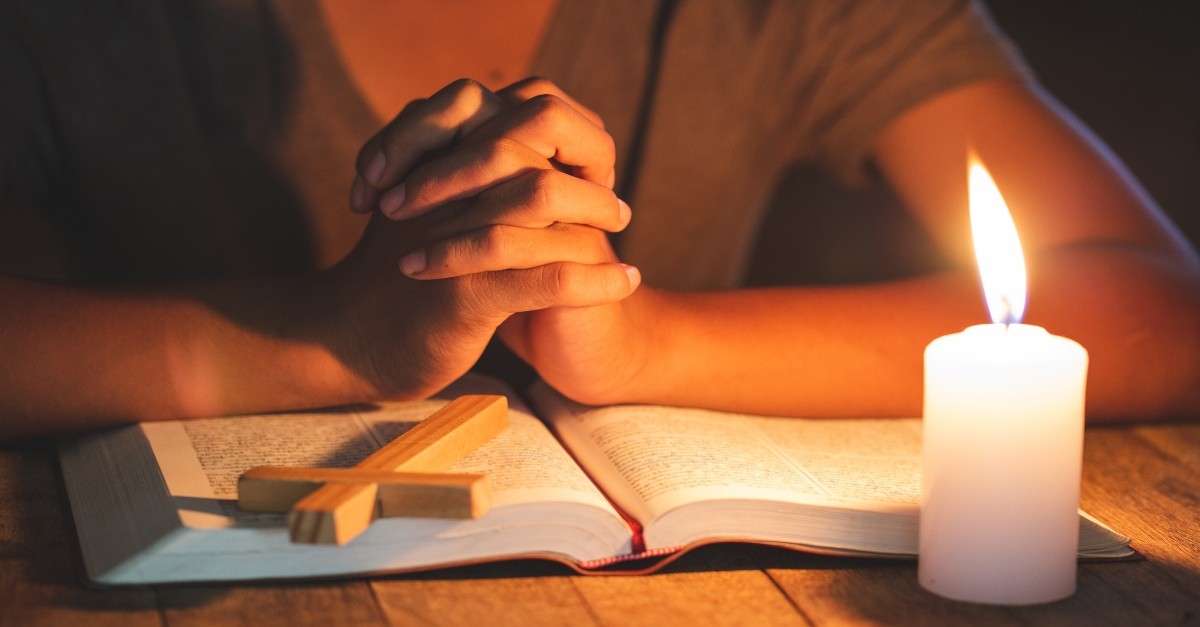
Christian holidays mark key events in the life of Jesus and the Church, including Christmas (His birth), Easter (His resurrection), and Pentecost (the Spirit’s arrival). Each celebration highlights a core truth of the Christian faith and helps believers remember God’s redemptive work throughout history.
If you purchase a pre-printed calendar these days, you’re likely to find many different kinds of holidays: Christian holidays, holidays celebrated by other world religions, and days that the U.S. government determined should be days off to honor a person or event. It can be easy to lose the Christian holidays in the mix. While there are several Christ-centered holidays throughout the year, people are most familiar with Christmas and Easter. Even people who don’t believe in Jesus have co-opted these holidays to celebrate without any reference to Jesus (a secular Santa Claus and Easter bunny are all the evidence we need there).
When I was in junior high, my family stopped regularly attending church, but my parents still found it important to go on Christmas and Easter. My parents still thought it was important that their children understand that Jesus, the Savior of the world, came to earth, died for our sins, and rose again. Therefore, it made sense that they would want us to be exposed to messages about his incarnation at Christmas and His resurrection at Easter–even if we were considered “Chreasters.” As an adult, I know that these are the most important Christian holidays, but now, thankfully, I have a greater understanding of both.
Photo credit: ©Getty Images/Booky Buggy

The Centrality and Significance of Christmas
We are so conditioned to celebrate a joyous Christmas holiday every December that it’s strange to think that Jesus' birth was a shock to the people of Israel. In the Old Testament, the Israelites, God’s chosen people, heard repeatedly from prophets of God that someone was coming to save them from their conquerors. A king would be raised up in the line of David (Jeremiah 23:5-6), and His kingdom would never end (2 Samuel 7:12-13). He would be anointed to proclaim good news to the poor (Isaiah 61:1). There were several prophecies regarding his birth as well: he would be born of a virgin (Isaiah 7:14) in the town of Bethlehem (Micah 5:2) and that King Herod would kill innocent children in an attempt to eliminate a newborn rival king (Jeremiah 31:15).
God decided more than 2,000 years ago that it was time for the prophecies to be fulfilled. Jesus didn’t arrive as a conquering king in the way the Israelites expected. And that was the point. Jesus humbled himself to be born as a baby and experience all of the struggles of being human while teaching people what God is like. Knowing what we know about Jesus on this side of the cross, we revel in the joy of celebrating the day that He was born and became “Immanuel” or “God with us.”
There are many theories on why December 25 was chosen as Jesus' “birthday” and when believers began to call this Christian holiday “Christmas." In the article “Do We Know When Jesus Was Actually Born?” author Britt Mooney says the Bible gives us clues to the season He may have been born, and it likely wasn’t in the winter time. One reason given was that shepherds would not have had their flocks in the field in the winter time, so the scene of angels singing to shepherds would have taken place during warmer months (it is winter in Israel when it’s winter in the United States).
Why, then, do we celebrate Christ's birth in December?
Mooney continues: “A leading theory for why Christianity chose December 25 for Christmas comes from the influence of the Roman pagan festival of Saturnalia, a popular winter celebration of the god Saturn," which was one of Rome’s most celebrated pagan holidays. “By assigning Jesus’ birth to December 25, the church could help the culture more easily give up their pagan focus and now use the same time to worship Christ.”
Regardless of the time of year Jesus was born or why the celebration of his birth now takes place in December, the important thing for Christians today is that we are privileged to honor Him each year by singing songs that celebrate His birth, giving gifts similarly to the three wise men, and fellowshipping with one another with our eyes fixed on His second coming.
Photo credit: ©Getty Images/Losw

Why Easter Can Be Considered the Most Important Christian Holiday
Does one day stand out as the most important Christian holiday? Absolutely, and again, it started with people who were amazed that God didn’t do what they expected. If we go back to Jesus’ last days on earth over 2,000 years ago, we find His 12 disciples celebrating a Passover dinner with Him. Jesus told them He was going to be given over to authorities, be crucified, and die for the sins of the world. The disciples were dumbfounded. This is not what they anticipated, and they tried to tell Him He was wrong. Jesus turned their hopes for Him upside down; they were looking for a conquering king like David who would overthrow their oppressors. His followers were devastated and confused as he was crucified and buried.
On the third day (as He promised), Jesus rose from the grave and proved that He had power over our biggest oppressors: evil and death. He showed Himself to His disciples and to hundreds of others, who likely just began to understand what He meant by rising after three days. Before he ascended back to heaven, proving yet again that He was the all-powerful Son of God, He told them He would send the Holy Spirit to be with them until He returned. An eternal relationship with the Father, Son, and Holy Spirit–nothing on earth could compare to it.
The Resurrection is pivotal and essential to Christians who have accepted God’s free gift of grace. Though our sins separated us from God, Jesus paid the price for them. For those who believe this good news message, and repent of their old life, they “will never perish, but have everlasting life" (John 3:16). There is no more important event in the history of the universe, and therefore no more important holiday than Easter. So we gather on Easter Sunday and sing our “hallelujahs” to our Savior, Redeemer, King, and Friend who will never leave us or forsake us.
Photo credit: ©GettyImages/Boonyachoat

What Are Other Important Christian Holidays?
There are three holidays that are not celebrated in the same way as Christmas and Easter, but they are no less important in understanding what Jesus did for us.
- Good Friday is the recognition of the day that Jesus was crucified. So why is it called “good”? Because, like many other things in life that we don’t understand, God was doing something amazingly good on that day, even though it looked horrible. No one realized that God was defeating evil and death on that day. All they saw was what looked like God abandoning His one and only Son. But once He resurrected from the dead on Easter, they realized why the day of his bodily death is now called “good”. Good Friday is a solemn time for churches that recognize it with special services.
- Ascension Day is the Christian holiday that celebrates Jesus’ ascension back to heaven 40 days after his resurrection. During those 40 days, the New Testament mentions 12 times that Jesus met with His followers, including 500 believers in Galilee. On Ascension Day we acknowledge that Jesus did in fact rise again, and anticipate His coming again in glory.
- Pentecost is the Christian holiday commemorating the day the Holy Spirit descended upon and indwelled the disciples (celebrated on the seventh Sunday after Easter). This took place in Jerusalem while the Israelites were celebrating a Jewish holy day. The Holy Spirit was the gift that Jesus promised His closest followers, and enabled them to preach to many people who understood what they were saying, each in his/her own language. This holiday is another example of God doing what seems to man to be impossible, but is never impossible with God.
Image created using AI technology and subsequently edited and reviewed by our editorial team.

What Are Some Lesser-Known Christian Holidays?
There are other Christian holidays that are celebrated by many denominations that serve either as commemorations or special observances.
- Lent is the 40 days leading up to Easter. The Council of Nicaea, the first ecumenical council of the Christian church, met in 325 AD and determined when to celebrate Easter, since they didn’t know the exact date of the event. Then, they also decided that a holy observance of confession, self-reflection, and focus on Jesus’ sacrifice should take place in the 40 days leading up to Easter. According to the Museum of the Bible, 40 days has Biblical significance. “God sends rain on the earth for 40 days and 40 nights when Noah and his family go into the ark (Genesis 7:4). Moses sits atop Mount Sinai receiving instructions from God for 40 days (Exodus 24:18). Elijah “walked 40 days and forty nights to the mountain of God, Horeb” when he flees Jezebel’s wrath (1 Kings 19:8). The 40 days of Lent, however, are primarily identified with the time Jesus spent in the desert fasting, praying, and being tempted by the devil (Matthew 4:1–11).”
The first day of Lent is Ash Wednesday when believers in some denominations have ashes in the shape of the cross placed on their foreheads (symbolizing that we are made from dust and to dust we shall return, and ultimately, that we are in need of a Savior).
- All Saints’ Day is a celebration of all the “saints” who have died in the faith. These can be those who were officially “canonized” by the church from ancient until modern times. For instance, St. Patrick, St. Francis of Assisi, Mother Teresa, and others are recognized on All Saints’ Day. But the full meaning of the day is that all those who have come to faith in Christ through the gift of God’s grace are considered saints. Special services are held on November 1 each year (the day after “All Hallows Eve” or “Halloween”).
- Epiphany, or the Feast of the Epiphany, is a celebration of the arrival of the Three Wise Men in Bethlehem to meet the new king of the Jews. They had been led there by a star in the sky that they believed was the answer to a prophecy about a king’s star. Epiphany takes place on January 6, at the end of the 12 Days of Christmas. It’s a time for Christians to reflect again on Jesus's gift to all believers and how our lives can be a gift back to Him.
Photo credit: ©Getty Images

How Can Christians Celebrate Holidays with A Christ-Centered Focus?
It may sound trite, but it's true to say that the best way to celebrate Christian holidays with a Christ-centered focus is to understand what we are celebrating! And not just understand, but have reverence for each observance and learn what it means in terms of our relationship with Jesus. That starts with opening the Bible to read more about the life of Jesus, and to ask the Holy Spirit to illuminate what you should learn in order to become more like Christ.
Another great way to celebrate is to gather in church and participate in the traditions and rituals surrounding each Christian holiday. This is a fantastic opportunity to fellowship with those who are just as excited to honor Christ as Lord and Savior.
Christian holidays also run the gamut of human experience and emotion, and therefore I believe that’s another reason to celebrate with our brothers and sisters in Christ. At Christmas, we are in awe and rejoice. At Easter, we are elated. At Lent we are humbled. On Good Friday, we are devastated (as we consider Christ’s torturous death for us).
Photo Credit: ©iStock/Getty Images Plus/artplus

Why are Christian Holidays Important?
Christian holidays are essential in the life of a believer. Over and over in the Bible, God tells us to remember the things He has done and to share them with our children and others. That’s exactly what we do when we get together to celebrate each of these days. By rehearsing over and over each year what each day/season signifies, our spirit is renewed, we hide God’s word deeper in our hearts, and we encourage one another to keep the faith until Jesus returns.
Additionally, Christian holidays provide an opportunity to build community and strengthen relationships within families, churches, and broader circles. By gathering to worship, share meals, and engage in meaningful traditions, believers can encourage one another in faith and reflect the love of Christ to the world. These celebrations are a reminder that our faith is not just personal but also communal, drawing us closer to both God and one another.
Photo credit: ©Sparrow Stock
Mary Oelerich-Meyer is a Chicago-area freelance writer and copy editor who prayed for years for a way to write about and for the Lord. She spent 20 years writing for area healthcare organizations, interviewing doctors and clinical professionals and writing more than 1,500 articles in addition to marketing collateral materials. Important work, but not what she felt called to do. She is grateful for any opportunity to share the Lord in her writing and editing, believing that life is too short to write about anything else. Previously she served as Marketing Communications Director for a large healthcare system. She holds a B.A. in International Business and Marketing from Cornell College (the original Cornell!) When not researching or writing, she loves to spend time with her writer daughter, granddaughter, rescue doggie and husband (not always in that order).
Originally published Thursday, 21 November 2024.
